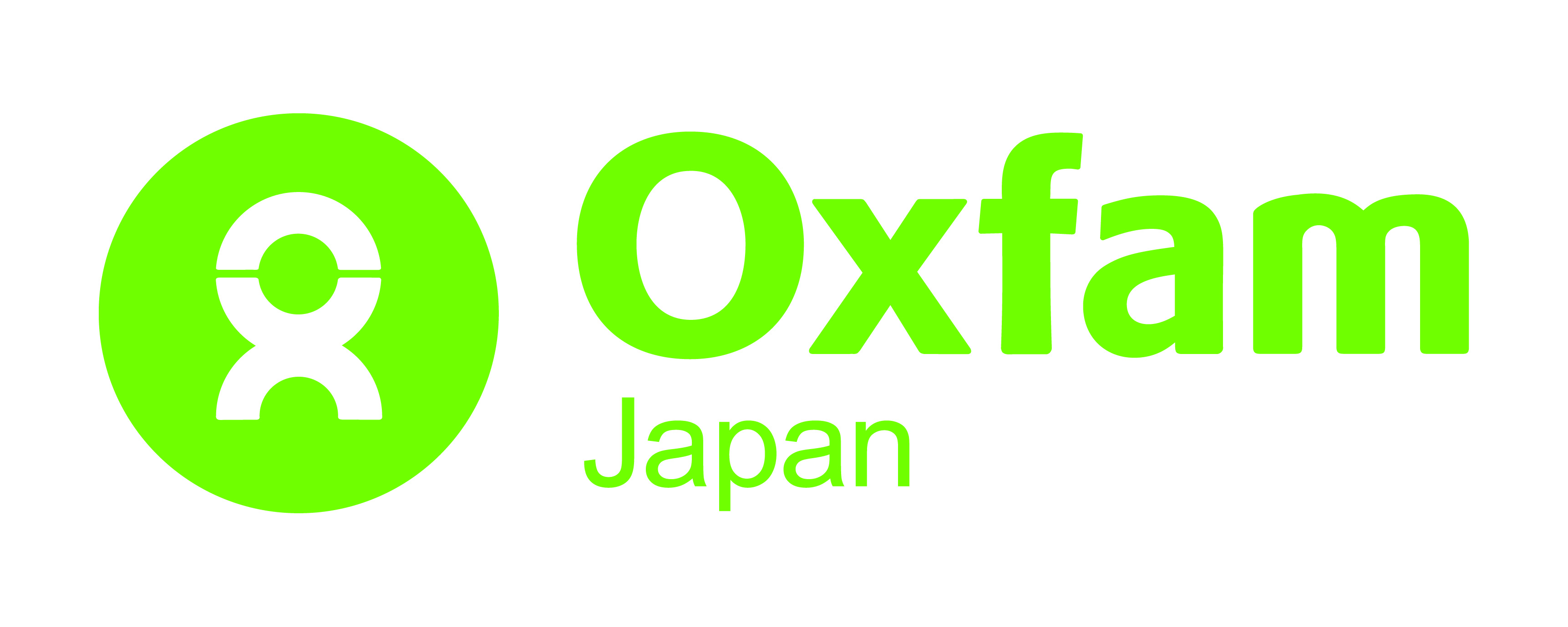東日本大震災女性支援ネットワークとは
1995 年の阪神淡路大震災や過去の災害から、女性は災害による被害を受けやすく、緊急避難や復興過程でも、負担が大きくなりやすいことが明らかになっています。
東日本大震災でも、女性たちは、自身のからだの健康、子どもの養育や家族の介護などのケア、身体的・精神的暴力、安全を確保し生活を再建する場としての居住、雇用や補償といった経済的な問題など、人権の根底にかかわる困難を抱えています。
私たちは、特に被災した女性たちの多様なニーズを広く伝えるとともに、それに答える体制をつくるため、2011 年5月にこのネットワークを立ち上げました。
ネットワークの目的
被災した人々の多様性に配慮し、災害に脆いとされる人々のなかでも、特に女性の権利が保障される環境をつくります。女性の視点が尊重される支援を求め、被災した女性たちが救援や復興に主体的に関わることができるよう支えていきます。また、復興支援に関わる団体や個人が、ジェンダー視点を理解して支援活動および復興・防災計画の策定・実施をするよう働きかけます。
背景
未曾有の大災害を受け、被災者ご自身、政府自治体、企業、NGO/NPOが懸命の支援活動を行っておりますが、ジェンダーを主流化した短期的、中期的、長期的な支援は女性の人権のみならず、こどもたち、家族を守り、生活を再建していく過程で不可欠な活動です。
被災された女性たちは、からだの問題(生理や膀胱炎など)、こどもの問題(特に頼れる家族・親類等が居ない方、亡くされた方)、暴力(性暴力、DV)の問題、不安定雇用ゆえの今後の生計の問題など、人権の根底にかかわる女性特有の問題(あるいは問題に直面する可能性)をお持ちです。被災された方の数や被災地域の規模の大きさから、NGO/NPOが情報交換を行うと共に、内閣府など関係官庁や、その他の支援組織への提言(ときには協働)を行い、できるだけ多くの方々にリーチするために、このネットワークを設立します。
コンセプト
●設立意図
東日本大震災で被災した人々の多様性に配慮し、脆弱性の高い人々、特に女性の権利が満たされる環境づくりを目指す。
●使命
女性の視点に基づいた支援が行われ、被災した女性たちが救援や復興に主体的に関わることができるような過程を支えるとともに、救援・復興に関わる団体・個人がジェンダーの視点を取り入れて救援活動および復興計画の策定・実施するための推進役となる。
目標
組織の性格:被災地の女性を支援する団体のゆるやかなネットワーク
●主な機能
(1) 支援団体間の活動のコーディネーション
(2) 主要なステークホルダーにジェンダー主流化を働きかける (政府、メディア、支援組織など)
*基本的に、被災女性たちの直接支援は行わない(各加盟団体が直接支援を行っており、ネットワークは加盟団体とこの点が重ならないようにすることが重要)
(3) 参加団体 :被災地の女性を支援するNPO、市民グループなど
メンバー
●共同代表
竹信 三恵子(和光大学教授/元朝日新聞編集委員兼論説委員)
中島 明子(和洋女子大学教授)
●世話人
丹羽 雅代(NPO法人女性の安全と健康のための支援教育センター運営委員・JCN(東日本大震災支援ネットワーク)元ジェンダー・多様性チーム長)
正井 礼子(NPO法人ウィメンズネット・こうべ代表理事)
山下 梓(岩手レインボー・ネットワーク代表/ゲイジャパンニュース共同代表)
斎藤 文栄(東日本大震災女性支援ネットワーク・前コーディネーター)
●運営委員
赤石 千衣子(NPO法人しんぐるまざあず・ふぉーらむ理事長)
浅野 幸子(東京女学館大学非常勤講師/早稲田大学「地域社会と危機管理研究所」招聘研究員)
池田 恵子(静岡大学教育学部教授)
ゆのまえ 知子(DV防止リサーチ・コンサルタント)
柘植 あづみ(明治学院大学社会学部教授)
吉浜 美恵子(ミシガン大学大学院准教授)
皆川 満寿美(東京大学社会科学研究所特任研究員)
岡本 美架(東日本大震災女性支援ネットワーク広報、NPO法人キッズドア プロジェクト・コーディネーター)
福田 紀子(東日本大震災女性支援ネットワーク・プロジェクトマネージャー)
小林 淳子(東日本大震災女性支援ネットワーク・オフィスマネージャー)
連絡先
office@risetogetherjp.org
www.risetogetherjp.org
東日本大震災女性支援ネットワーク
住所:〒113-0023 東京都文京区向丘1-7-8
電話/FAX:03-3830-5285
振込先:郵便振替10110-48151381
または
ゆうちょ銀行〇一八店(ゼロイチハチテン)
普通口座4815138
Background
Since the magnitude 9.0 great earthquake hit eastern Japan on March 11, large volumes of financial assistance have been pledged to the devastated region from within and outside of the country. Not only the central government, but local governments, communities and businesses have extended support, as well as domestic and overseas non-governmental and non-profit organizations. Having lost more than 20,000 lives with more missing, homes and offices, the people affected by the earthquake and the tsunami need extended relief aid and reconstruction assistance to deal with an unprecedented scale of devastation. The needs of the survivors vary according to a wide range of age, gender, sexual orientation, disabilities, ethnicities, family relationships and employment. We cannot and should not leave the responsibility of recovery only up to local support groups. Instead, the survivors need a wide range of support including hands-on help from as many experts as possible.
Women who survived the disaster face a particular aspect of the disaster-led hardships, which may violate their basic human rights. We must deal with issues related to their individual needs, both physical and mental, child-rearing, caring for family members, physical and psychological abuse, employment, insurance and housing. Despite the urgent need to develop a gender-based perspective in the recovery process, we see there is no proper system to address this need in Japan.
The Cabinet Office has issued guidelines on how to better meet the needs of vulnerable people in the devastated region, based on lessons learned from the 1995 Great Hanshin Earthquake. However, the guidelines still lack follow-up measures, and they are not reinforced. This project is, thus, aimed at fulfilling the lack of female representation in every aspect of life.
Concept
Vision
Human rights of the women who survived the Great East Japan Earthquake are respected.
Mission
To respond to and best fulfill the needs of the women survivors in the Great East Japan
Earthquake;
To help create opportunities where women can initiate some of the reconstruction efforts;
To promote gender sensitivity in the main stream society.
Target
Scope of activities
To ensure psychological and physical safety and security of the women involved in assisting women survivors (Preventing violence and follow-up care)
To ensure livelihood of women survivors through employment and compensation (Information, consultation, lobbying for policy reforms)
To improve housing and living environment for women survivors (Evacuation centers, temporary housing, encouraging participation in community rebuilding)
To improve medical, hygiene, welfare services in devastated region
To strengthen media relations of women survivors and their support groups
Organization
Rise Together for Women in East Japan Disaster (Rise Together) is to help women, especially survivors of the disaster, play an active role in Tohoku's reconstruction efforts by advocating and lobbying for measures and policies that respond to their particular needs at best. This is done by gathering data and voices of women through researches and by informing the public, as well as the government, of our findings. The group set up a council and overseers to maintain accountability in carrying out its projects.
Members
Board
Akiko Nakajima (Wayo Women's University)
Mieko Takenobu (Wako University)
Chieko Akaishi (Single mother's forum)
Reiko Masai (Women's Net Kobe)
Azusa Yamashita (Iwate Rainbow Network/Gay Japan News)
Fumie Saito(Coordinator)
Steering Committee
